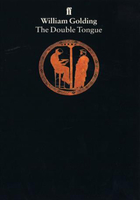Before May was out, Molly Corney was married and had left the neighbourhood for Newcastle. Although Charley Kinraid was not the bridegroom, Sylvia's promise to be bridesmaid was claimed. But the friendship brought on by the circumstances of neighbourhood and parity of age had become very much weakened in the time that elapsed between Molly's engagement and wedding. In the first place, she herself was so absorbed in her preparations, so elated by her good fortune in getting married, and married, too, before her elder sister, that all her faults blossomed out full and strong. Sylvia felt her to be selfish; Mrs. Robson thought her not maidenly. A year before she would have been far more missed and regretted by Sylvia; now it was almost a relief to the latter to be freed from the perpetual calls upon her sympathy, from the constant demands upon her congratulations, made by one who had no thought or feeling to bestow on others; at least, not in these weeks of 'cock-a-doodle-dooing,' as Mrs. Robson persisted in calling it. It was seldom that Bell was taken with a humorous idea; but this once having hatched a solitary joke, she was always clucking it into notice—to go on with her own poultry simile.
Every time during that summer that Philip saw his cousin, he thought her prettier than she had ever been before; some new touch of colour, some fresh sweet charm, seemed to have been added, just as every summer day calls out new beauty in the flowers. And this was not the addition of Philip's fancy. Hester Rose, who met Sylvia on rare occasions, came back each time with a candid, sad acknowledgement in her heart that it was no wonder that Sylvia was so much admired and loved.
One day Hester had seen her sitting near her mother in the market-place; there was a basket by her, and over the clean cloth that covered the yellow pounds of butter, she had laid the hedge-roses and honeysuckles she had gathered on the way into Monkshaven; her straw hat was on her knee, and she was busy placing some of the flowers in the ribbon that went round it. Then she held it on her hand, and turned it round about, putting her head on one side, the better to view the effect; and all this time, Hester, peeping at her through the folds of the stuffs displayed in Foster's windows, saw her with admiring, wistful eyes; wondering, too, if Philip, at the other counter, were aware of his cousin's being there, so near to him. Then Sylvia put on her hat, and, looking up at Foster's windows, caught Hester's face of interest, and smiled and blushed at the consciousness of having been watched over her little vanities, and Hester smiled back, but rather sadly. Then a customer came in, and she had to attend to her business, which, on this as on all market days, was great. In the midst she was aware of Philip rushing bare-headed out of the shop, eager and delighted at something he saw outside. There was a little looking-glass hung against the wall on Hester's side, placed in that retired corner, in order that the good women who came to purchase head-gear of any kind might see the effect thereof before they concluded their bargain. In a pause of custom, Hester, half-ashamed, stole into this corner, and looked at herself in the glass. What did she see? a colourless face, dark soft hair with no light gleams in it, eyes that were melancholy instead of smiling, a mouth compressed with a sense of dissatisfaction. This was what she had to compare with the bright bonny face in the sunlight outside. She gave a gulp to check the sigh that was rising, and came back, even more patient than she had been before this disheartening peep, to serve all the whims and fancies of purchasers.
Sylvia herself had been rather put out by Philip's way of coming to her. 'It made her look so silly,' she thought; and 'what for must he make a sight of himself, coming among the market folk in that-a-way'; and when he took to admiring her hat, she pulled out the flowers in a pet, and threw them down, and trampled them under foot.
'What for art thou doing that, Sylvie?' said her mother. 'The flowers is well enough, though may-be thy hat might ha' been stained.'
'I don't like Philip to speak to me so,' said Sylvia, pouting.
'How?' asked her mother.
But Sylvia could not repeat his words. She hung her head, and looked red and pre-occupied, anything but pleased. Philip had addressed his first expression of personal admiration at an unfortunate tune.
It just shows what different views different men and women take of their fellow-creatures, when I say that Hester looked upon Philip as the best and most agreeable man she had ever known. He was not one to speak of himself without being questioned on the subject, so his Haytersbank relations, only come into the neighborhood in the last year or two, knew nothing of the trials he had surmounted, or the difficult duties he had performed. His aunt, indeed, had strong faith in him, both from partial knowledge of his character, and because he was of her own tribe and kin; but she had never learnt the small details of his past life. Sylvia respected him as her mother's friend, and treated him tolerably well as long as he preserved his usual self-restraint of demeanour, but hardly ever thought of him when he was absent.
Now Hester, who had watched him daily for all the years since he had first come as an errand-boy into Foster's shop—watching with quiet, modest, yet observant eyes—had seen how devoted he was to his master's interests, had known of his careful and punctual ministration to his absent mother's comforts, as long as she was living to benefit by his silent, frugal self-denial.
His methodical appropriation of the few hours he could call his own was not without its charms to the equally methodical Hester; the way in which he reproduced any lately acquired piece of knowledge—knowledge so wearisome to Sylvia—was delightfully instructive to Hester—although, as she was habitually silent, it would have required an observer more interested in discovering her feelings than Philip was to have perceived the little flush on the pale cheek, and the brightness in the half-veiled eyes whenever he was talking. She had not thought of love on either side. Love was a vanity, a worldliness not to be spoken about, or even thought about. Once or twice before the Robsons came into the neighbourhood, an idea had crossed her mind that possibly the quiet, habitual way in which she and Philip lived together, might drift them into matrimony at some distant period; and she could not bear the humble advances which Coulson, Philip's fellow-lodger, sometimes made. They seemed to disgust her with him.
But after the Robsons settled at Haytersbank, Philip's evenings were so often spent there that any unconscious hopes Hester might, unawares, have entertained, died away. At first she had felt a pang akin to jealousy when she heard of Sylvia, the little cousin, who was passing out of childhood into womanhood. Once—early in those days—she had ventured to ask Philip what Sylvia was like. Philip had not warmed up at the question, and had given rather a dry catalogue of her features, hair, and height, but Hester, almost to her own surprise, persevered, and jerked out the final question.
'Is she pretty?'
Philip's sallow cheek grew deeper by two or three shades; but he answered with a tone of indifference,—
'I believe some folks think her so.'
'But do you?' persevered Hester, in spite of her being aware that he somehow disliked the question.
'There's no need for talking o' such things,' he answered, with abrupt displeasure.
Hester silenced her curiosity from that time. But her heart was not quite at ease, and she kept on wondering whether Philip thought his little cousin pretty until she saw her and him together, on that occasion of which we have spoken, when Sylvia came to the shop to buy her new cloak; and after that Hester never wondered whether Philip thought his cousin pretty or no, for she knew quite well. Bell Robson had her own anxieties on the subject of her daughter's increasing attractions. She apprehended the dangers consequent upon certain facts, by a mental process more akin to intuition than reason. She was uncomfortable, even while her motherly vanity was flattered, at the admiration Sylvia received from the other sex. This admiration was made evident to her mother in many ways. When Sylvia was with her at market, it might have been thought that the doctors had prescribed a diet of butter and eggs to all the men under forty in Monkshaven. At first it seemed to Mrs. Robson but a natural tribute to the superior merit of her farm produce; but by degrees she perceived that if Sylvia remained at home, she stood no better chance than her neighbours of an early sale. There were more customers than formerly for the fleeces stored in the wool-loft; comely young butchers came after the calf almost before it had been decided to sell it; in short, excuses were seldom wanting to those who wished to see the beauty of Haytersbank Farm. All this made Bell uncomfortable, though she could hardly have told what she dreaded. Sylvia herself seemed unspoilt by it as far as her home relations were concerned. A little thoughtless she had always been, and thoughtless she was still; but, as her mother had often said, 'Yo' canna put old heads on young shoulders;' and if blamed for her carelessness by her parents, Sylvia was always as penitent as she could be for the time being. To be sure, it was only to her father and mother that she remained the same as she had been when an awkward lassie of thirteen. Out of the house there were the most contradictory opinions of her, especially if the voices of women were to be listened to. She was 'an ill-favoured, overgrown thing'; 'just as bonny as the first rose i' June, and as sweet i' her nature as t' honeysuckle a-climbing round it;' she was 'a vixen, with a tongue sharp enough to make yer very heart bleed;' she was 'just a bit o' sunshine wheriver she went;' she was sulky, lively, witty, silent, affectionate, or cold-hearted, according to the person who spoke about her. In fact, her peculiarity seemed to be this—that every one who knew her talked about her either in praise or blame; in church, or in market, she unconsciously attracted attention; they could not forget her presence, as they could that of other girls perhaps more personally attractive. Now all this was a cause of anxiety to her mother, who began to feel as if she would rather have had her child passed by in silence than so much noticed. Bell's opinion was, that it was creditable to a woman to go through life in the shadow of obscurity,—never named except in connexion with good housewifery, husband, or children. Too much talking about a girl, even in the way of praise, disturbed Mrs. Robson's opinion of her; and when her neighbours told her how her own daughter was admired, she would reply coldly, 'She's just well enough,' and change the subject of conversation. But it was quite different with her husband. To his looser, less-restrained mind, it was agreeable to hear of, and still more to see, the attention which his daughter's beauty received. He felt it as reflecting consequence on himself. He had never troubled his mind with speculations as to whether he himself was popular, still less whether he was respected. He was pretty welcome wherever he went, as a jovial good-natured man, who had done adventurous and illegal things in his youth, which in some measure entitled him to speak out his opinions on life in general in the authoritative manner he generally used; but, of the two, he preferred consorting with younger men, to taking a sober stand of respectability with the elders of the place; and he perceived, without reasoning upon it, that the gay daring spirits were more desirous of his company when Sylvia was by his side than at any other time. One or two of these would saunter up to Haytersbank on a Sunday afternoon, and lounge round his fields with the old farmer. Bell kept herself from the nap which had been her weekly solace for years, in order to look after Sylvia, and on such occasions she always turned as cold a shoulder to the visitors as her sense of hospitality and of duty to her husband would permit. But if they did not enter the house, old Robson would always have Sylvia with him when he went the round of his land. Bell could see them from the upper window: the young men standing in the attitudes of listeners, while Daniel laid down the law on some point, enforcing his words by pantomimic actions with his thick stick; and Sylvia, half turning away as if from some too admiring gaze, was possibly picking flowers out of the hedge-bank. These Sunday afternoon strolls were the plague of Bell's life that whole summer. Then it took as much of artifice as was in the simple woman's nature to keep Daniel from insisting on having Sylvia's company every time he went down to Monkshaven. And here, again, came a perplexity, the acknowledgement of which in distinct thought would have been an act of disloyalty, according to Bell's conscience. If Sylvia went with her father, he never drank to excess; and that was a good gain to health at any rate (drinking was hardly a sin against morals in those days, and in that place); so, occasionally, she was allowed to accompany him to Monkshaven as a check upon his folly; for he was too fond and proud of his daughter to disgrace her by any open excess. But one Sunday afternoon early in November, Philip came up before the time at which he usually paid his visits. He looked grave and pale; and his aunt began,—
'Why, lad! what's been ado? Thou'rt looking as peaked and pined as a Methody preacher after a love-feast, when he's talked hisself to Death's door. Thee dost na' get good milk enow, that's what it is,—such stuff as Monkshaven folks put up wi'!'
'No, aunt; I'm quite well. Only I'm a bit put out—vexed like at what I've heerd about Sylvie.'
His aunt's face changed immediately.
'And whatten folk say of her, next thing?'
'Oh,' said Philip, struck by the difference of look and manner in his aunt, and subdued by seeing how instantly she took alarm. 'It were only my uncle;—he should na' take a girl like her to a public. She were wi' him at t' "Admiral's Head" upo' All Souls' Day—that were all. There were many a one there beside,—it were statute fair; but such a one as our Sylvie ought not to be cheapened wi' t' rest.'
'And he took her there, did he?' said Bell, in severe meditation. 'I had never no opinion o' th' wenches as 'll set theirselves to be hired for servants i' th' fair; they're a bad lot, as cannot find places for theirselves—'bout going and stannin' to be stared at by folk, and grinnin' wi' th' plough-lads when no one's looking; it's a bad look-out for t' missus as takes one o' these wenches for a servant; and dost ta mean to say as my Sylvie went and demeaned hersel' to dance and marlock wi' a' th' fair-folk at th' "Admiral's Head?"'
'No, no, she did na' dance; she barely set foot i' th' room; but it were her own pride as saved her; uncle would niver ha' kept her from it, for he had fallen in wi' Hayley o' Seaburn and one or two others, and they were having a glass i' t' bar, and Mrs. Lawson, t' landlady, knew how there was them who would come and dance among parish 'prentices if need were, just to get a word or a look wi' Sylvie! So she tempts her in, saying that the room were all smartened and fine wi' flags; and there was them in the room as told me that they never were so startled as when they saw our Sylvie's face peeping in among all t' flustered maids and men, rough and red wi' weather and drink; and Jem Macbean, he said she were just like a bit o' apple-blossom among peonies; and some man, he didn't know who, went up and spoke to her; an' either at that, or at some o' t' words she heard—for they'd got a good way on afore that time—she went quite white and mad, as if fire were coming out of her eyes, and then she turned red and left the room, for all t' landlady tried to laugh it off and keep her in.'
'I'll be down to Monkshaven before I'm a day older, and tell Margaret Lawson some on my mind as she'll not forget in a hurry.'
Bell moved as though she would put on her cloak and hood there and then.
'Nay, it's not in reason as a woman i' that line o' life shouldn't try to make her house agreeable,' said Philip.
'Not wi' my wench,' said Bell, in a determined voice.
Philip's information had made a deeper impression on his aunt than he intended. He himself had been annoyed more at the idea that Sylvia would be spoken of as having been at a rough piece of rustic gaiety—a yearly festival for the lower classes of Yorkshire servants, out-door as well as in-door—than at the affair itself, for he had learnt from his informant how instantaneous her appearance had been. He stood watching his aunt's troubled face, and almost wishing that he had not spoken. At last she heaved a deep sigh, and stirring the fire, as if by this little household occupation to compose her mind, she said—
'It's a pity as wenches aren't lads, or married folk. I could ha' wished—but it were the Lord's will—It would ha' been summut to look to, if she'd had a brother. My master is so full on his own thoughts, yo' see, he's no mind left for thinking on her, what wi' th' oats, and th' wool, and th' young colt, and his venture i' th'?Lucky Mary.'
She really believed her husband to have the serious and important occupation for his mind that she had been taught to consider befitting the superior intellect of the masculine gender; she would have taxed herself severely, if, even in thought, she had blamed him, and Philip respected her feelings too much to say that Sylvia's father ought to look after her more closely if he made such a pretty creature so constantly his companion; yet some such speech was only just pent within Philip's closed lips. Again his aunt spoke—
'I used to think as she and yo' might fancy one another, but thou'rt too old-fashioned like for her; ye would na' suit; and it's as well, for now I can say to thee, that I would take it very kindly if thou would'st look after her a bit.'
Philip's countenance fell into gloom. He had to gulp down certain feelings before he could make answer with discretion.
'How can I look after her, and me tied to the shop more and more every day?'
'I could send her on a bit of an errand to Foster's, and then, for sure, yo' might keep an eye upon her when she's in th' town; and just walk a bit way with her when she's in th' street, and keep t' other fellows off her—Ned Simpson, t' butcher, in 'special, for folks do say he means no good by any girl he goes wi'—and I'll ask father to leave her a bit more wi' me. They're coming down th' brow, and Ned Simpson wi' them. Now, Philip, I look to thee to do a brother's part by my wench, and warn off all as isn't fit.'
The door opened, and the coarse strong voice of Simpson made itself heard. He was a stout man, comely enough as to form and feature, but with a depth of colour in his face that betokened the coming on of the habits of the sot. His Sunday hat was in his hand, and he smoothed the long nap of it, as he said, with a mixture of shyness and familiarity—
'Sarvant, missus. Yo'r measter is fain that I should come in an' have a drop; no offence, I hope?'
Sylvia passed quickly through the house-place, and went upstairs without speaking to her cousin Philip or to any one. He sat on, disliking the visitor, and almost disliking his hospitable uncle for having brought Simpson into the house, sympathizing with his aunt in the spirit which prompted her curt answers, and in the intervals of all these feelings wondering what ground she had for speaking as if she had now given up all thought of Sylvia and him ever being married, and in what way he was too 'old-fashioned.'
Robson would gladly have persuaded Philip to join him and Simpson in their drink, but Philip was in no sociable mood, and sate a little aloof, watching the staircase down which sooner or later Sylvia must come; for, as perhaps has been already said, the stairs went up straight out of the kitchen. And at length his yearning watch was rewarded; first, the little pointed toe came daintily in sight, then the trim ankle in the tight blue stocking, the wool of which was spun and the web of which was knitted by her mother's careful hands; then the full brown stuff petticoat, the arm holding the petticoat back in decent folds, so as not to encumber the descending feet; the slender neck and shoulders hidden under the folded square of fresh white muslin; the crowning beauty of the soft innocent face radiant in colour, and with the light brown curls clustering around. She made her way quickly to Philip's side; how his heart beat at her approach! and even more when she entered into a low-voiced?tete-a-tete.
'Isn't he gone yet?' said she. 'I cannot abide him; I could ha' pinched father when he asked him for t' come in.'
'Maybe, he'll not stay long,' said Philip, hardly understanding the meaning of what he said, so sweet was it to have her making her whispered confidences to him.
But Simpson was not going to let her alone in the dark corner between the door and the window. He began paying her some coarse country compliments—too strong in their direct flattery for even her father's taste, more especially as he saw by his wife's set lips and frowning brow how much she disapproved of their visitor's style of conversation.
'Come, measter, leave t' lass alone; she's set up enough a'ready, her mother makes such a deal on her. Yo' an' me's men for sensible talk at our time o' life. An', as I was saying, t' horse was a weaver if iver one was, as any one could ha' told as had come within a mile on him.'
And in this way the old farmer and the bluff butcher chatted on about horses, while Philip and Sylvia sate together, he turning over all manner of hopes and projects for the future, in spite of his aunt's opinion that he was too 'old-fashioned' for her dainty, blooming daughter. Perhaps, too, Mrs. Robson saw some reason for changing her mind on this head as she watched Sylvia this night, for she accompanied Philip to the door, when the time came for him to start homewards, and bade him 'good-night' with unusual fervour, adding—
'Thou'st been a deal o' comfort to me, lad—a'most as one as if thou wert a child o' my own, as at times I could welly think thou art to be. Anyways, I trust to thee to look after the lile lass, as has no brother to guide her among men—and men's very kittle for a woman to deal wi; but if thou'lt have an eye on whom she consorts wi', my mind 'll be easier.'
Philip's heart beat fast, but his voice was as calm as usual when he replied—
'I'd just keep her a bit aloof from Monkshaven folks; a lass is always the more thought on for being chary of herself; and as for t' rest, I'll have an eye to the folks she goes among, and if I see that they don't befit her, I'll just give her a warning, for she's not one to like such chaps as yon Simpson there; she can see what's becoming in a man to say to a lass, and what's not.'
Philip set out on his two-mile walk home with a tumult of happiness in his heart. He was not often carried away by delusions of his own creating; to-night he thought he had good ground for believing that by patient self-restraint he might win Sylvia's love. A year ago he had nearly earned her dislike by obtruding upon her looks and words betokening his passionate love. He alarmed her girlish coyness, as well as wearied her with the wish he had then felt that she should take an interest in his pursuits. But, with unusual wisdom, he had perceived his mistake; it was many months now since he had betrayed, by word or look, that she was anything more to him than a little cousin to be cared for and protected when need was. The consequence was that she had become tamed, just as a wild animal is tamed; he had remained tranquil and impassive, almost as if he did not perceive her shy advances towards friendliness. These advances were made by her after the lessons had ceased. She was afraid lest he was displeased with her behaviour in rejecting his instructions, and was not easy till she was at peace with him; and now, to all appearance, he and she were perfect friends, but nothing more. In his absence she would not allow her young companions to laugh at his grave sobriety of character, and somewhat prim demeanour; she would even go against her conscience, and deny that she perceived any peculiarity. When she wanted it, she sought his advice on such small subjects as came up in her daily life; and she tried not to show signs of weariness when he used more words—and more difficult words—than were necessary to convey his ideas. But her ideal husband was different from Philip in every point, the two images never for an instant merged into one. To Philip she was the only woman in the world; it was the one subject on which he dared not consider, for fear that both conscience and judgment should decide against him, and that he should be convinced against his will that she was an unfit mate for him, that she never would be his, and that it was waste of time and life to keep her shrined in the dearest sanctuary of his being, to the exclusion of all the serious and religious aims which, in any other case, he would have been the first to acknowledge as the object he ought to pursue. For he had been brought up among the Quakers, and shared in their austere distrust of a self-seeking spirit; yet what else but self-seeking was his passionate prayer, 'Give me Sylvia, or else, I die?' No other vision had ever crossed his masculine fancy for a moment; his was a rare and constant love that deserved a better fate than it met with. At this time his hopes were high, as I have said, not merely as to the growth of Sylvia's feelings towards him, but as to the probability of his soon being in a position to place her in such comfort, as his wife, as she had never enjoyed before.
For the brothers Foster were thinking of retiring from business, and relinquishing the shop to their two shopmen, Philip Hepburn and William Coulson. To be sure, it was only by looking back for a few months, and noticing chance expressions and small indications, that this intention of theirs could be discovered. But every step they took tended this way, and Philip knew their usual practice of deliberation too well to feel in the least impatient for the quicker progress of the end which he saw steadily approaching. The whole atmosphere of life among the Friends at this date partook of this character of self-repression, and both Coulson and Hepburn shared in it. Coulson was just as much aware of the prospect opening before him as Hepburn; but they never spoke together on the subject, although their mutual knowledge might be occasionally implied in their conversation on their future lives. Meanwhile the Fosters were imparting more of the background of their business to their successors. For the present, at least, the brothers meant to retain an interest in the shop, even after they had given up the active management; and they sometimes thought of setting up a separate establishment as bankers. The separation of the business,—the introduction of their shopmen to the distant manufacturers who furnished their goods (in those days the system of 'travellers' was not so widely organized as it is at present),—all these steps were in gradual progress; and already Philip saw himself in imagination in the dignified position of joint master of the principal shop in Monkshaven, with Sylvia installed as his wife, with certainly a silk gown, and possibly a gig at her disposal. In all Philip's visions of future prosperity, it was Sylvia who was to be aggrandized by them; his own life was to be spent as it was now, pretty much between the four shop walls.















